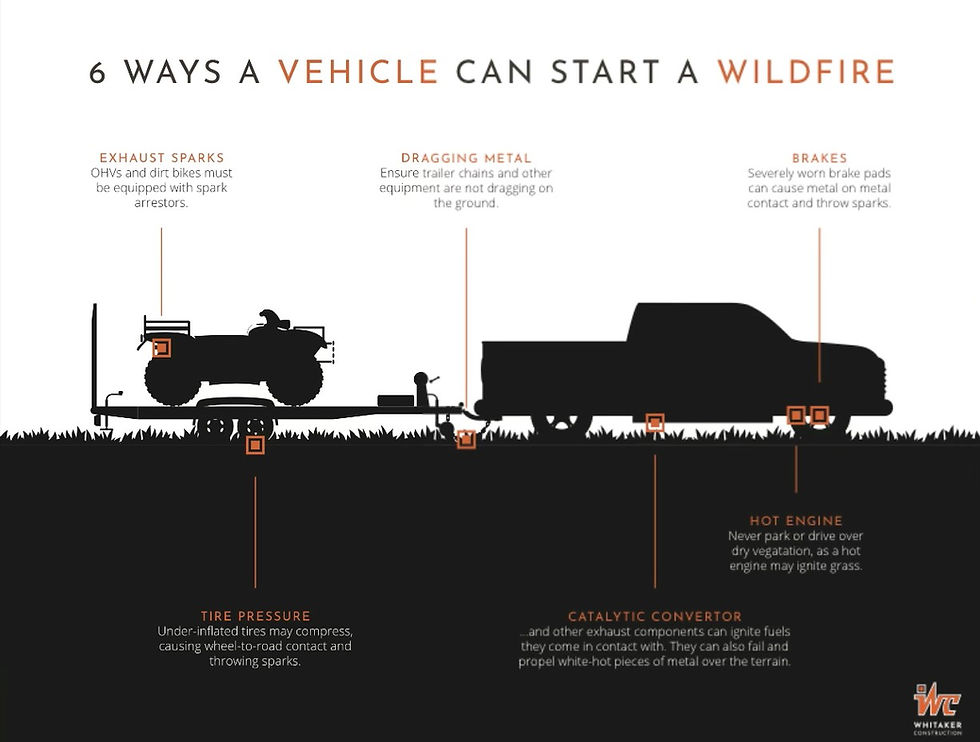
Vehicle & Equipment Safety to Prevent Wildfire
Overheated Components On Vehicles & Heavy Equipment
Overheated exhaust manifolds, seized bearings, or locked brakes can generate enough heat to ignite many different sources of fuel. DO NOT park or drive over dry grasses or brush.
Ensure that no parts (e.g., tow chains, exhaust pipes) are dragging. Keep tires properly inflated. Maintain brakes – metal-to-metal contact may throw sparks.
Don't park or drive over dry grasses or brush. Hot exhaust pipes and mufflers can start fires you can't see. Be sure UTVs have spark arresters.
Carry a fully charged/inspected fire extinguisher in your vehicle and know how to use it.
Tires
Poor maintenance and tire changing practices can leave small shards of metal inside of a tire. If the air inside the tire becomes overheated due to under-inflation. Too much load or too much speed it can cause these small bits of metal to catch fire and in turn, the burning metal can start the rubber on fire. Inspect tires and maintain recommended tire pressure.
Debris
Debris is high on the list of fire hazards. Land clearing applications throw huge amounts of flammable material onto and into heavy equipment. It is essential that to keep debris cleaned out of the machine. Tracking, metal-to-rock contact can also throw a spark and start a fire.
Hot Work Safety to Prevent Wildfire
Grinding, welding, brazing, soldering, any work or tool that generates sparks or heat, should be kept well away from any source of fuel. Be vigilant when welding or grinding on equipment that may have fuel or oil leaks or debris that could catch fire. Clean first, then work. Complete a hot work permit, address fuels in the area, and have a fire watch with a fire extinguisher at all times.


.jpg)







コメント